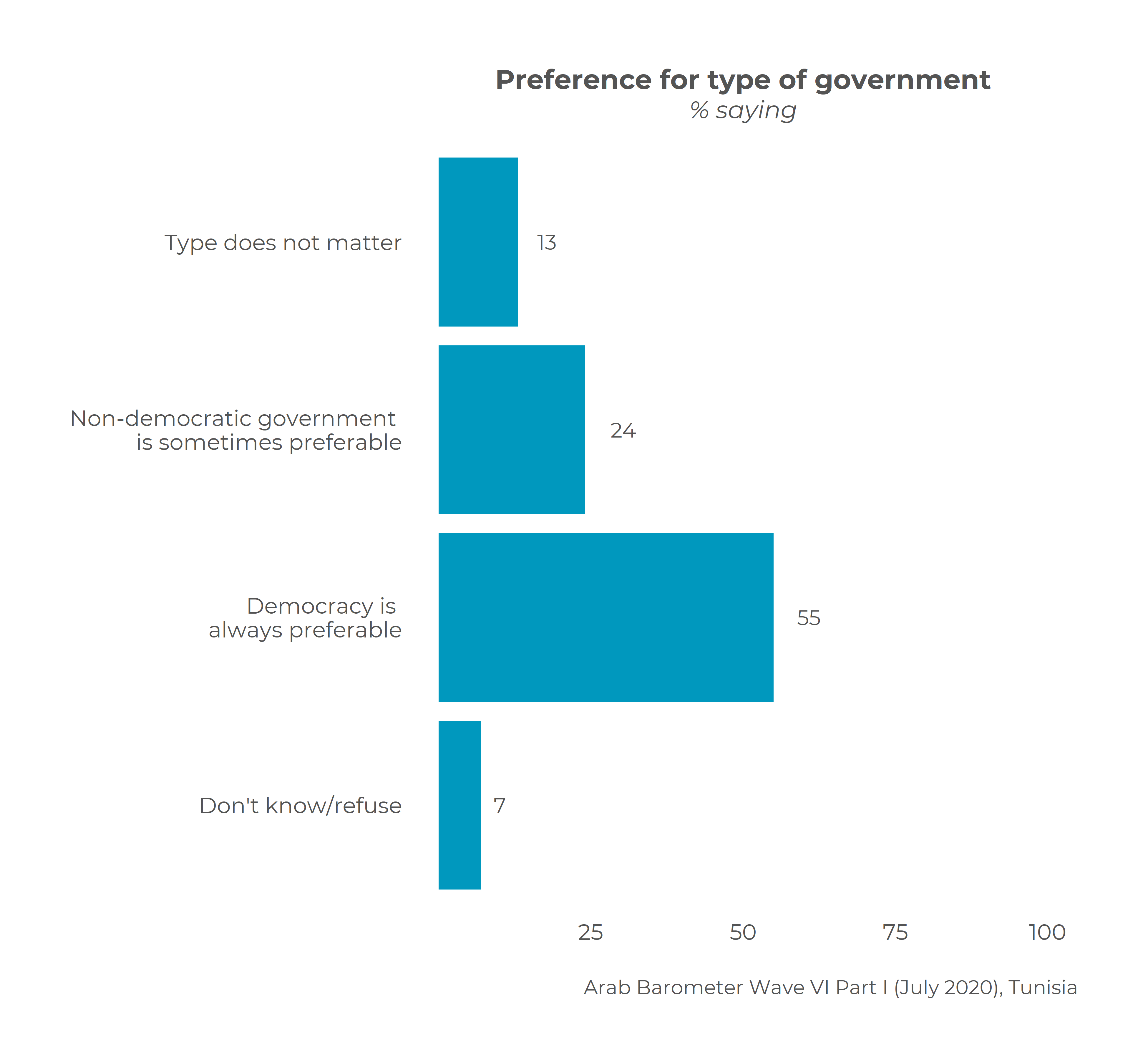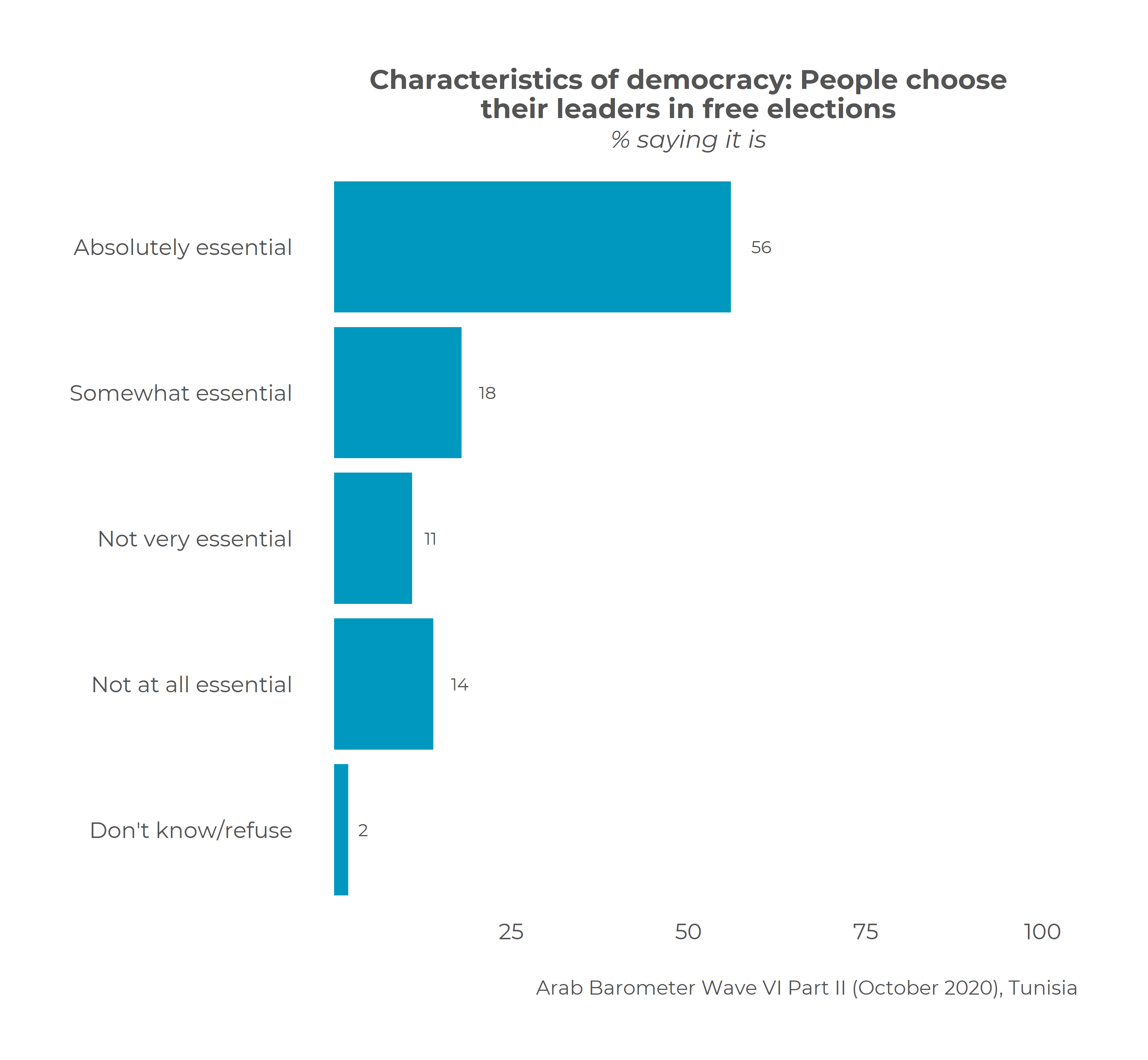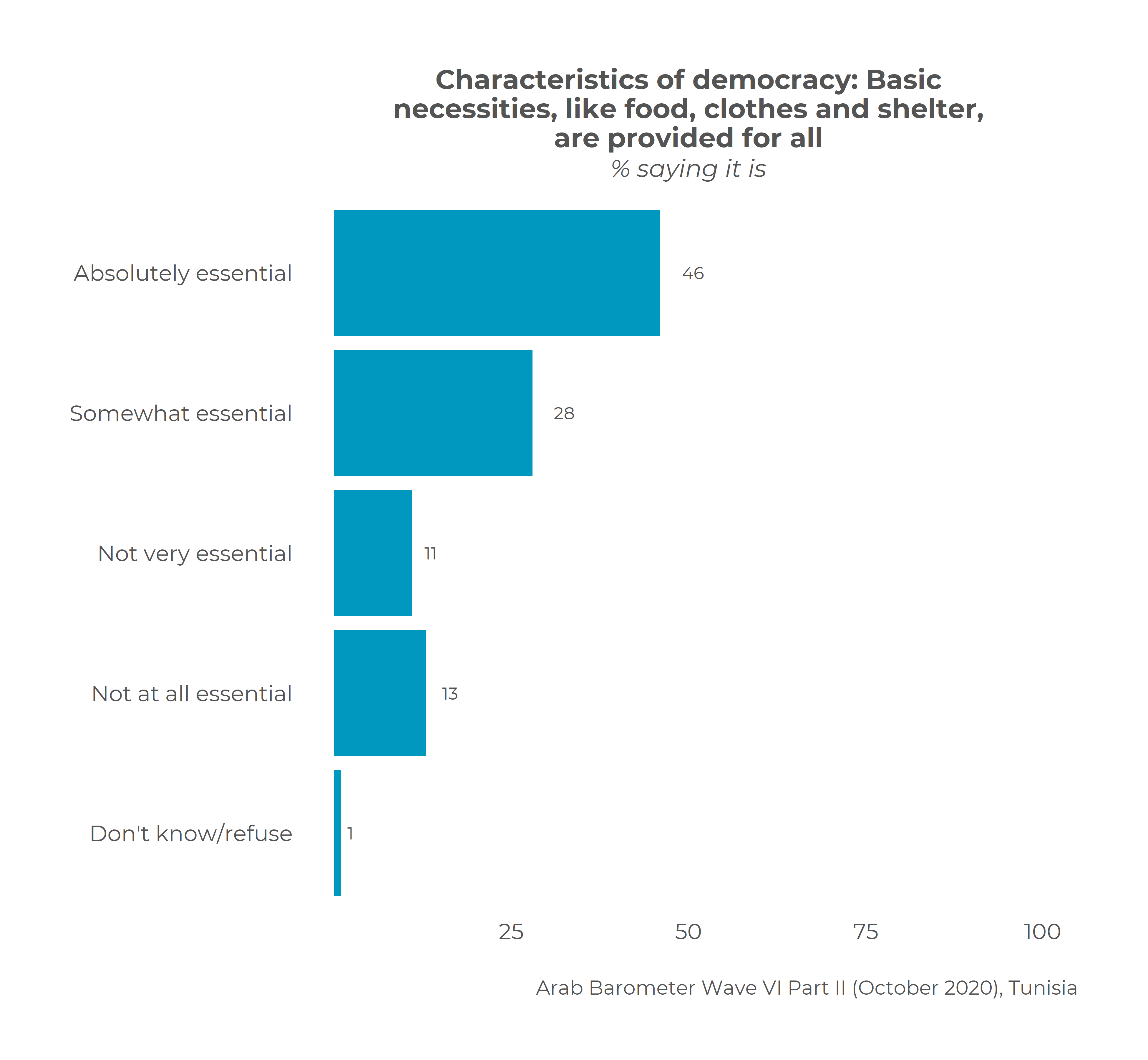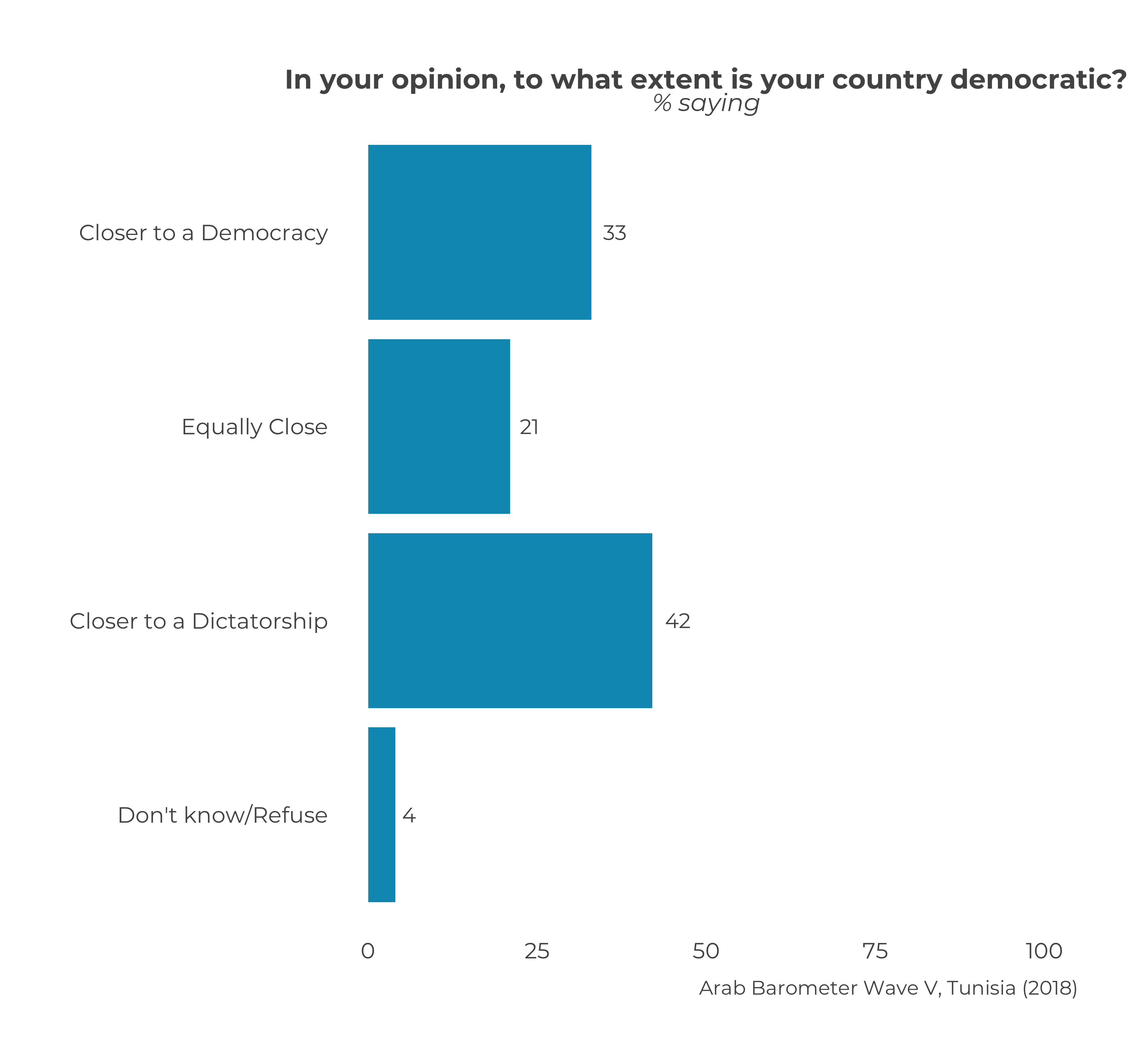As Tunisia’s major political crisis unfolds, some commentators have argued that the country’s citizens never wanted democracy in the first place. However, data from Arab Barometer presents a different picture. In recently conducted surveys from the Arab Barometer’s sixth wave, a majority of Tunisians say that democracy is always preferable to other forms of government compared to just a quarter who say non-democratic governments can sometimes be better. Moreover, three quarters of Tunisians say that freely choosing leaders in free and fair elections is an essential characteristic of democracy.
At the same time Tunisians also define democracy in terms of economic outcomes. Three-quarters also say that an essential characteristic of democracy is ensuring all citizens have basic necessities like food, clothing, and shelter. Given the dismal state of economic conditions in recent years, Tunisians have become increasingly frustrated with their political system. Perhaps this is why in 2018, only a third of citizens rated Tunisia as being closer to a democracy than a dictatorship.
In short, Arab Barometer results make clear that Tunisians want democracy. What pundits seem to have missed is that relatively few Tunisians believe they currently live in a democracy. Building a full and inclusive democracy that meets the basic demands of citizens is what Tunisians have been demanding for years. Unfortunately, political elites have failed to deliver those outcomes since the revolution of 2011.






